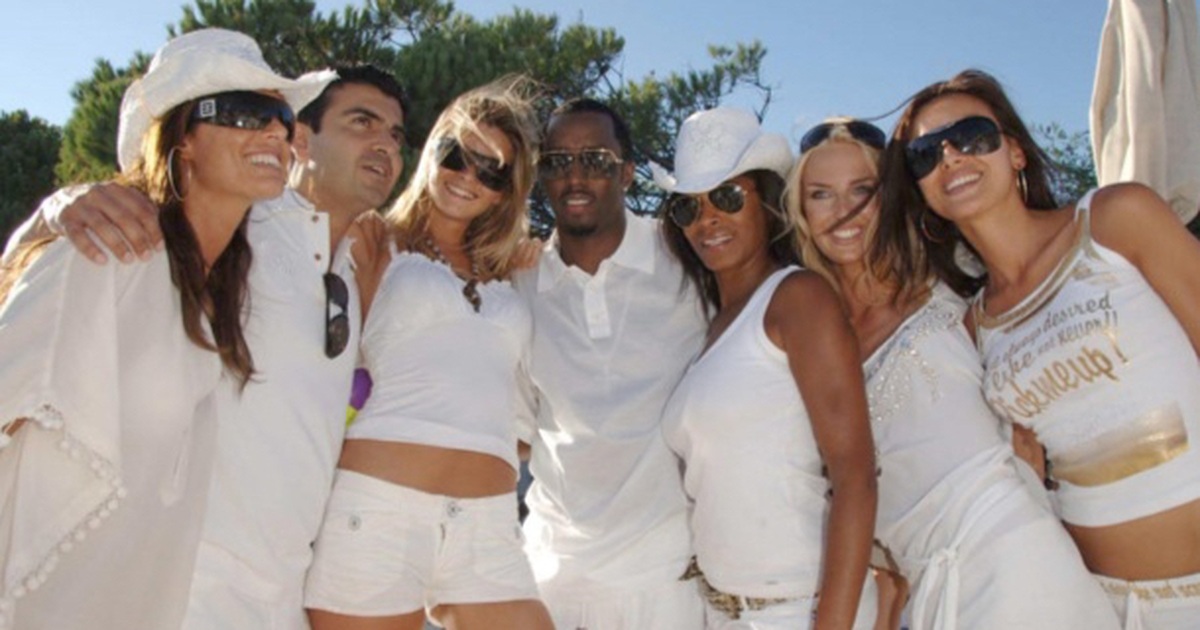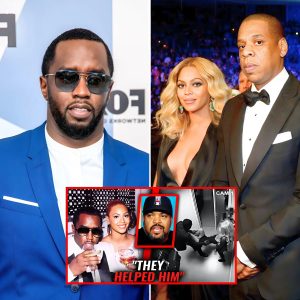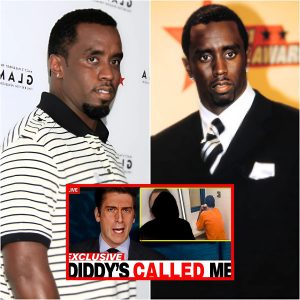In recent weeks, Sean “Diddy” Combs has come under intense scrutiny as allegations of sexual misconduct surface, involving a multitude of celebrities who may have been victimized in compromising situations. The ongoing investigation into Diddy’s alleged actions has unveiled an unsettling narrative marked by power dynamics and exploitation, particularly affecting the young and vulnerable individuals trying to establish their careers in Hollywood.
Reports indicate that federal authorities are gathering evidence, including purported explosive tapes, that could implicate not only Diddy but also a number of high-profile figures. A witness close to the case claims to possess videos showing instances of sexual abuse involving Diddy and eight celebrities—six men and two women—perpetuating a culture of trauma and imbalance in the entertainment industry. Disturbingly, it has been suggested that some individuals in the footage appeared to be minors, further complicating the already grave nature of the allegations.

The existence of these tapes raises serious questions about the culture surrounding celebrity privilege and the environment that enables such behavior. How could individuals—many of whom are celebrated not just for their talent but also for their influence—find themselves in such compromising positions? According to the witness, all parties involved looked inebriated, suggesting a lack of consent and awareness regarding the events taking place. It is a somber reality that intoxication can strip individuals of their agency, particularly vulnerable young talents, in their pursuit of success and acceptance in Hollywood’s high-stakes environment.
A significant point of concern is the systemic issue of exploitation that often occurs within the industry. The desire to break into show business can leave individuals susceptible to coercion from more powerful figures. As younger—and often impressionable—individuals navigate the complexities of celebrity culture, they may feel pressured to comply with inappropriate requests, believing it to be a necessary evil in pursuit of their dreams. Statements reportedly made by Diddy, like “If you want to break into this industry, you need to do this for me,” reflect a troubling dynamic that exploits ambition, turning aspirations into bargaining chips for personal gain.
It’s crucial to ask, where were the personal security and support systems of these celebrities during such alleged events? Kim Porter, Diddy’s late ex-girlfriend and mother of four of his children, is said to have been involved in the distribution of these tapes. However, her tragic passing has left many questions unanswered. Did her potential knowledge of these recordings go unaddressed in life, perhaps in an effort to protect her children from scrutiny or further harm?
The absence of adequate support systems during these alleged incidents calls into question not only Diddy’s ethical conduct but also the broader culture within the industry that allows for such abuses to occur. Many individuals might have felt isolated or intimidated, unsure of how to navigate situations that crossed moral thresholds. The potential fear of backlash or future repercussions often cages victims in silence, exacerbating the cycle of abuse.

What is striking is the relative silence surrounding these allegations, especially compared to past revelations in cases involving figures like Harvey Weinstein or Bill Cosby, where victims were more willing to come forward. Many of Diddy’s alleged victims might feel a compounded pressure not to speak out due to the high-profile and interconnected nature of the industry. The intricate relationships between powerful individuals likely fosters an environment where silence is the safest option, keeping many from exposing their experiences.
Additionally, public perceptions of male victims of abuse frequently lead to their experiences being minimized or ignored, perpetuating stereotypes that portray men as aggressors rather than victims. This cultural bias complicates the willingness of male survivors to disclose their victimization, adding undo pressure onto those already struggling with trauma. An environment that fails to validate their stories only amplifies feelings of shame, leaving survivors feeling isolated and alone.
As we witness the unfolding events surrounding Diddy and the hosting of potential incriminating tapes, it’s essential to recognize the far-reaching implications these allegations hold for the entertainment industry as a whole. The power dynamics at play not only endanger the physical and emotional well-being of young talent but also cast a long shadow on Hollywood’s glamor, revealing a world fraught with manipulation and exploitation.
Moving forward, it is critical that we dismantle the structures that enable such abusive behavior, creating a safer environment for aspiring artists while validating their experiences. The spotlight must return to the survivors of these experiences, amplifying their voices and ensuring that they have the support they need to navigate the complexities of fame and power without fear of retaliation or silence.
Ultimately, it will be telling how the industry responds to these allegations and whether genuine efforts to address the deep-rooted issues within entertainment culture are made. This situation serves as a sobering reminder that fame does not absolve individuals of responsibility nor does it shield them from the consequences of their actions. With public interest and discussion rising, the hope is that the truth will emerge—shedding light on the pervasive issue of exploitation and igniting a movement for reform that prioritizes justice and healing in the face of trauma.





